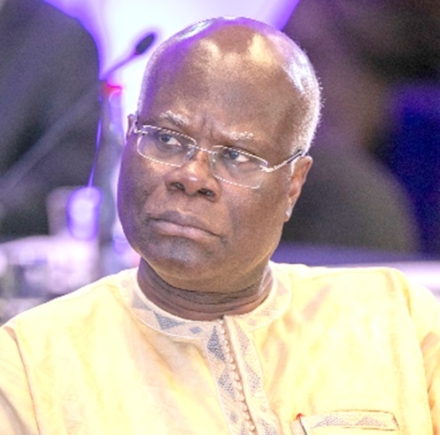A storm is brewing in Ghana's construction sector as the Chamber of Cement Manufacturers, Ghana (COCMAG) raises serious concerns about the newly proposed Ghana Standards Authority (Pricing of Cement) Regulations, 2024 (L.I.).
While the Director-General of the Ghana Standards Authority (GSA), Professor Alex Dodoo, and some parliamentarians portray the L.I. as a mechanism to ensure transparency in the industry, COCMAG argues it is an attempt at price control.
The crux of the issue is in regulations 3(4), 3(5), and 3(6) of the L.I. These provisions empower a government committee of scientists at the GSA to reject a cement producer's reported price without explanation or a chance to appeal.
Furthermore, producers are prohibited from selling cement unless the committee approves their price. Non-compliance can lead to licence suspension. While price transparency is a laudable goal, the proposed regulations raise concerns about who wields the price control power.
The price control committee (PCC) is composed primarily of six scientists, led by Prof. Dodoo, a pharmacist. While their expertise in ensuring quality standards is undoubted, one wonders if a committee dominated by scientists possesses the nuanced understanding of market dynamics critical for setting a fair price for a complex commodity like cement.
Can they effectively balance production costs, globally- and locally-traded inputs, and the long-term health of Ghana's cement industry, better than the free market?
Industry questions lack of consultation
COCMAG emphasises that the regulations were drafted without any meaningful consultation. While some might suggest a meeting was planned, the facts paint a different picture.
Cement companies were summoned via a last-minute WhatsApp message on a Sunday evening for a meeting the following morning, with no agenda provided. Upon arriving for the meeting, chief executive officers (CEOs) were surprised to find the media present, raising concerns about transparency and potential media misrepresentation.
Ultimately, the CEOs were informed that the minister was unavailable to meet them. Despite the narrative of profiteering, Ghanaians should be aware of the challenges the cement industry faces. =
The cedi depreciation by 104 per cent since 2022 has significantly increased production costs with 77 per cent of cement inputs being dollar-denominated. However, the industry has stood by Ghanaians in this difficult period and only raised prices by 48 per cent in the same period, absorbing a significant portion of the cost increases.
Without this absorption, the price of cement should have been $2.30/bag or GH¢35/bag higher than it is.
Model of competition
Furthermore, Ghanaians deserve to know that their cement industry is one of the most competitive in West Africa, boasting one of the highest number of manufacturers among regional peers.
Ghana's 14 individual producers outnumber Nigeria's 12 and Togo's five. Ghana's cement prices are among the lowest in West Africa, although 30 per cent of the cost build-up is paid to the government in taxes, levies and service charges.
COCMAG argues that the Trade Minister's actions are unfair and not in the best interests of Ghanaians. While other sectors have experienced far higher price increases, the cement industry is being singled out for control. This approach could lead to:
● Reduced production and shortages: If the government-imposed price does not cover production costs, manufacturers may be forced to reduce production, hindering construction projects.
● Job losses: Reduced production can lead to job losses within the cement industry and related sectors.
● Discouraged investment: Without the ability to determine a fair market price, investors are less likely to invest in expanding production capacity, potentially leading to future shortages.
COCMAG is not alone in its opposition to this L.I. Several professional bodies have spoken out, including the Ghana Chamber of Construction Industry, the Ghana Real Estate Developers Association (GREDA), Importers and Exporters Association of Ghana, the consumer protection organisation, and CUTS International, all expressing concerns about the proposed regulations' impact on the industry and ultimately, Ghanaian consumers.
Way forward: Collaboration, not coercion
COCMAG urges the government to reconsider this heavy-handed approach and engage in constructive dialogue with the industry.
Transparency in cost structure, a focus on long-term solutions such as promoting local sourcing of raw materials and open communication are key elements for ensuring a sustainable and affordable cement supply for Ghana.
Issued by Chamber of Cement Manufacturers, Ghana (COCMAG)

